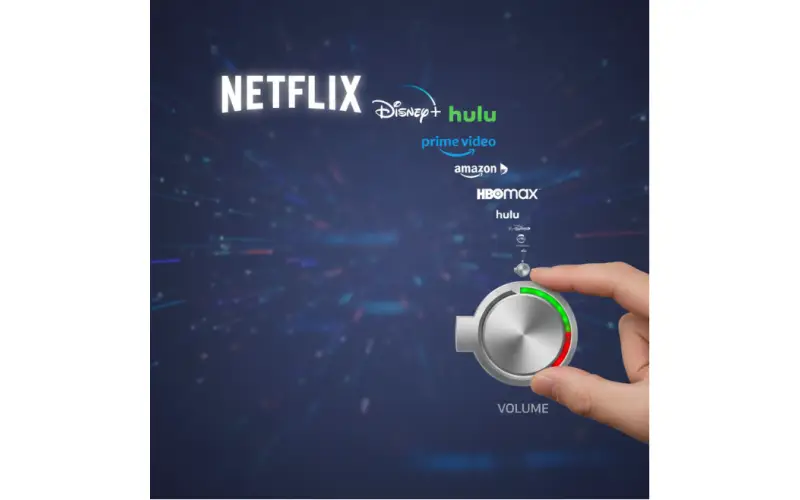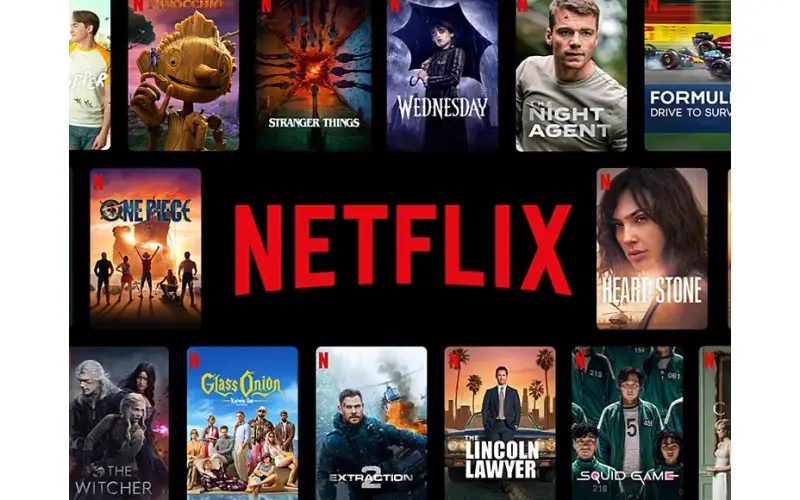By: Dipin Sehdev
Apple's foray into the fiercely competitive video streaming landscape with Apple TV+ has garnered critical acclaim and a dedicated following, boasting some of the most compelling and high-quality shows available. However, a recent report from The Information paints a stark picture of the service's financial performance, revealing substantial annual losses and raising questions about its long-term strategy. Despite the prestige and the impressive roster of original content, Apple TV+ is reportedly losing over $1 billion per year, a stark contrast to the profitability of other segments within Apple's vast empire.
While Apple's overall financial health remains robust, driven by the powerhouse that is the iPhone and its burgeoning services sector, the streaming venture stands out as a significant drain on resources. The Information's report, citing anonymous sources, indicates that Apple TV+ has amassed approximately 45 million subscribers. This figure, while respectable, pales in comparison to the behemoths of the industry, like Netflix, which boasts over 300 million subscribers.
Apple's strategy with Apple TV+ has always been somewhat unique. Unlike its competitors, which rely heavily on extensive libraries of licensed content, Apple has opted for a predominantly original content model. This approach has yielded impressive results in terms of critical acclaim, with shows like "Ted Lasso," "Severance," "The Morning Show," and "Silo" garnering widespread praise and numerous awards.
"Ted Lasso," a heartwarming and uplifting comedy starring Jason Sudeikis, has become a cultural phenomenon, capturing the hearts of viewers with its optimistic spirit and witty writing. The show has not only achieved critical success but also significantly boosted Apple TV+'s subscriber base. "Severance," a mind-bending thriller created by Dan Erickson and directed by Ben Stiller, has also been a major draw, captivating audiences with its intriguing premise and stellar performances. The show's success, notably increasing subscriptions by 2 million in a single month as reported by Antenna, underscores Apple TV+'s ability to produce content that resonates deeply with viewers.
However, the cost of producing such high-quality content is substantial. Apple has reportedly been spending around $4.5 billion annually on content, a figure that, while reduced from the initial $5 billion, still represents a significant investment. This high expenditure, coupled with the relatively modest subscriber base, contributes to the reported $1 billion annual loss.
Apple's decision to maintain a premium, ad-free experience further complicates the path to profitability. While many of its competitors have introduced ad-supported tiers to attract price-sensitive consumers, Apple TV+ remains committed to its $9.99 per month (or $99.99 per year) subscription model. This strategy, while appealing to those seeking an uninterrupted viewing experience, potentially limits its ability to attract a broader audience.
The Information's report also sheds light on Apple's efforts to curb spending on Apple TV+. The company has reportedly taken a "harder line on spending," reducing its content budget and scrutinizing expenditures on promotional activities. This shift in approach reflects a growing awareness within Apple of the need to manage costs more effectively, particularly in light of the service's ongoing losses.
One of the key questions surrounding Apple TV+ is its role within Apple's broader ecosystem. While the service may not be a significant revenue generator in its own right, it plays a crucial role in enhancing the value proposition of Apple's products and services. The idea is that compelling original content can drive engagement with Apple's ecosystem, encouraging consumers to purchase Apple devices and subscribe to other Apple services.
However, the effectiveness of this strategy remains a subject of debate. Netflix co-CEO Ted Sarandos, in an interview with Variety, expressed skepticism about Apple TV+'s business model, suggesting that it may primarily serve as a "marketing play." Sarandos' comments highlight the uncertainty surrounding Apple's long-term vision for the service.
Despite the financial challenges, Apple TV+ has made significant strides in establishing itself as a player in the streaming landscape. The service's commitment to quality over quantity has resulted in a portfolio of critically acclaimed shows and films, attracting a dedicated following of discerning viewers. Shows like "The Morning Show," starring Jennifer Aniston and Reese Witherspoon, have tackled complex and timely issues, earning praise for their insightful storytelling and powerful performances.
"Silo," a dystopian science fiction series based on Hugh Howey's novels, has also been a major success, captivating audiences with its immersive world-building and compelling characters. "Shrinking," a comedy-drama starring Jason Segel and Harrison Ford, has resonated with viewers with its blend of humor and emotional depth. "Bad Sisters," a dark comedy thriller created by Sharon Horgan, has garnered critical acclaim for its sharp writing and stellar ensemble cast. "Slow Horses," a spy thriller starring Gary Oldman, has been praised for its suspenseful plot and gritty realism.
Apple TV+'s film offerings have also been impressive, with titles like Martin Scorsese's "Killers of the Flower Moon" and the Oscar-winning "CODA" receiving widespread acclaim. The service has also invested in high-profile films like "Fly Me to the Moon," starring Scarlett Johansson and Channing Tatum, "The Family Plan," starring Mark Wahlberg and Michelle Monaghan, "Wolfs," starring George Clooney and Brad Pitt, and "The Instigators," starring Matt Damon and Casey Affleck.
In addition to its scripted content, Apple TV+ has also ventured into live sports, securing the rights to "Friday Night Baseball," a weekly MLB double-header. This move reflects Apple's ambition to expand its reach and attract a broader audience.
Despite the impressive content library, Apple TV+ faces significant challenges in terms of viewership. According to Nielsen data, the service accounts for less than 1 percent of total monthly streaming viewership, compared to Netflix's 8.2 percent. This disparity highlights the challenge of competing with established players with vast content libraries and extensive marketing budgets.
Apple's marketing efforts for Apple TV+ have also been a subject of criticism. The company has reportedly spent significantly less on advertising for the service compared to its other products, raising questions about its commitment to driving subscriber growth.
The Information's report also reveals that Apple TV+ is the only service within Apple's services segment that is not generating a profit. While other services like Apple Music, iCloud, and the App Store contribute significantly to Apple's bottom line, Apple TV+ remains a financial drain.
However, it's important to consider the context of Apple's overall financial performance. With a market capitalization of nearly $4 trillion and annual net income of over $90 billion, Apple can afford to absorb the losses associated with Apple TV+. The company's primary focus may not be on generating immediate profits from the service but rather on enhancing the value of its ecosystem and driving long-term customer engagement.
The streaming landscape is constantly evolving, and Apple TV+ will need to adapt to remain competitive. The service's commitment to quality content is a significant asset, but it will need to find ways to increase its subscriber base and improve its financial performance.
One potential avenue for growth is international expansion. Apple TV+ is currently available in over 100 countries and regions, but there is still room for further expansion. The service could also explore partnerships with other companies to bundle its offerings with other products and services.
Another potential strategy is to introduce an ad-supported tier. While this would represent a departure from Apple's current model, it could attract a broader audience and generate additional revenue.
Ultimately, the success of Apple TV+ will depend on Apple's ability to articulate a clear vision for the service and execute a strategy that resonates with viewers. The company's commitment to quality content is a solid foundation, but it will need to find ways to overcome the financial challenges and compete effectively in the increasingly competitive streaming landscape.
Apple TV+ has demonstrated that it can produce critically acclaimed and culturally relevant content. Shows like "Ted Lasso" and "Severance" have not only garnered praise but also significantly boosted the service's subscriber base. However, the service's long-term success will depend on its ability to translate its critical acclaim into financial viability.
The streaming wars are far from over, and Apple TV+ remains a compelling player in this dynamic landscape. While the financial challenges are significant, Apple's resources and commitment to quality content provide a solid foundation for future growth.





